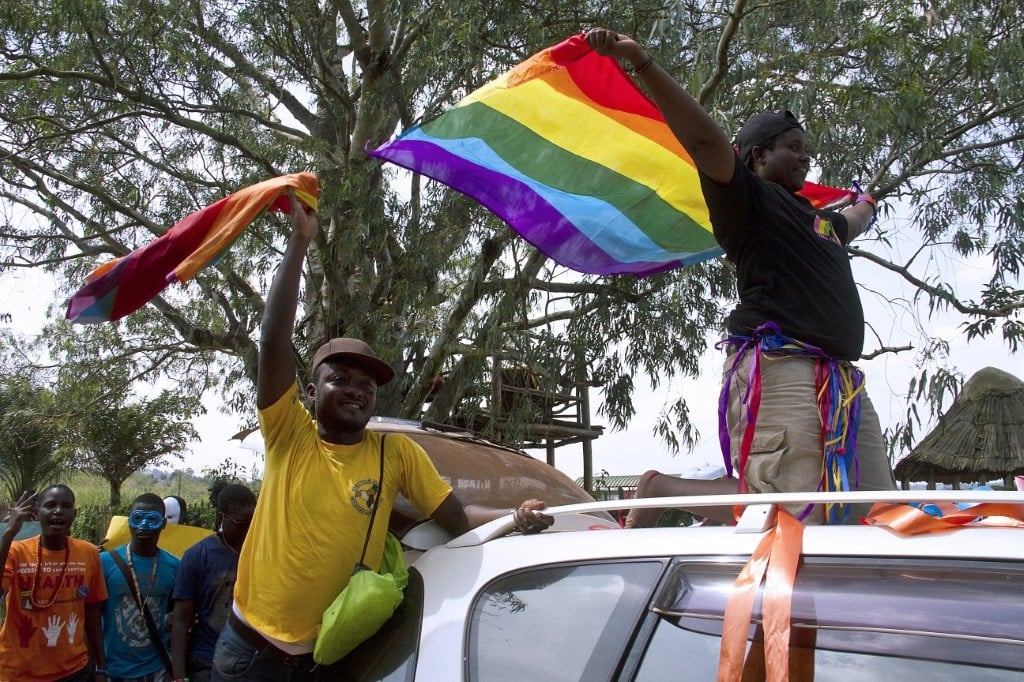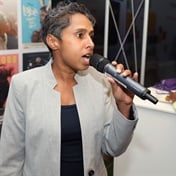
When it comes to human rights, it seems society is moving backwards.
In recent years, we’ve even seen stricter laws placed in the Western world, which has been largely considered being a beacon of hope for progressive and equal rights.
Even Africa is seeing a type of regression when it comes to the rights of LGBTIQ+ people. Uganda made headlines around the world earlier this year when they passed one of the world's harshest anti-LGBTIQ+ bills, with same-sex offences punishable by life imprisonment and sometimes even death.
READ: Janice Phiri | Say it loud: queer people are not for sale
While Uganda’s anti-LGBTIQ+ laws may seem harsh, the common theme of anti-LGBTIQ+ laws is rampant throughout Africa. In countries such as Sudan, Nigeria, Somalia and Mauritania, homosexuality is punishable by death, while life imprisonment is the maximum penalty for same-sex relations in places such as Tanzania, Sudan and Zambia.
Currently, there are 33 countries in Africa where same-sex attractions hold legal consequences. Even in a place like South Africa with some of the most progressive LGBTIQ+ laws, violence is still enacted upon queer people, in instances of homophobia queer people are beaten, killed and even punitively raped.
With Africa accounting for more than 50% of the countries where homosexuality is illegal, one would think it has been a culture that has been passed down from generation to generation. However, one would be surprised to find a rich history of queerness that is engrained into the foundations of our culture.
So, is it really un-African to be gay, and if not, at what point in our history did we change our tune?
A large part of African history has been lost due to the nature in which African lore was documented. African people are storytellers. Villagers and tribes would gather to hear elders tell the stories of their ancestors and the people that came before them. While other parts of our history were documented through creative practices such as sculptures and wall paintings, etched into caves with earth pigments such as minerals and charcoal.
Surprisingly, we see queerness even in the many artworks that have been preserved throughout history. Although our oral tradition of storytelling created the space for misconception and misinterpretation as time went on, there are so many genderless and gender-nonconforming deities who have been worshipped throughout history.
Gods and goddesses such as the Yoruba trickster God Esu Elegba and Mawu Lisa who was the Dahomey creator goddess were androgynous deities. While in Southern Africa, traditional healers were often non-binary and would not be expected to conform to their physical gender attributes.
Doctor of Philosophy Kenneth Chukwuemeka Nwoko has been studying and documenting queerness in African history for a long time, his research dictates that female husbandry was more prevalent than we would assume.
According to Nwoko, this practice existed in more than 30 African societies and included the Zulu tribes of KwaZulu-Natal, the Igbo of southeastern Nigeria, the Nandi tribe of Kenya and the Nuer of East Africa.
African societies once thrived on the diversity of their people and were free from some of the pressures that gender constructs sometimes presented.
In a 2018 article with Face2Face Africa, Nwoko stated:
“In Igboland, women who were considered exceptional in the eyes of society due to their wealth or social standing, and those who were past menopause could marry wives for themselves, for their husbands, for their sons, or for their siblings. These influential women were usually viewed as men, due to the fluidity of gender in the pre-colonial Igbo context, by marrying women their status was elevated mostly due to women husbands paying bride-price.
“In any ceremony, she enjoyed equal privilege with her male counterparts and in some Igbo communities like Uguta, could break kola nut, but only among her women folks. She combined both secular and spiritual functions and obligations. She participated in secret rituals and sometimes associated with the male elders in communal rituals.”
READ: Mbuyiselo Botha | Homosexuality threatens the African family structure... Er, really?
Post-colonial Africa looks vastly different and the lens by which homosexuality and gender are viewed has created a continent with contempt for its own rich history. The colonial import of homophobia came as a result of a religious practice that was brought to us on a boat. It has even been denounced by our leaders as an embarrassing, un-African, “white disease,” as stated by former Zimbabwean president Robert Mugabe.
Anti-queer rhetoric was imposed through the bible. In various bible verses, anti-gay rhetoric is prohibited and punishable by death or destruction, Leviticus chapter 20 verse 13 states:
Similarly, in other books such as Romans and Genesis, queerness is called an abomination and even prompted the destruction of an entire civilisation that was participating in homosexual activities.
Over time the Christian belief system became a staple in African societies, where queerness became demonised, and queer people were forced into their closets and their allies, brainwashed and obedient out of fear.
The fear instilled by colonial powers changed the course of our history and created a society which we should be ashamed of as Africans.
READ: The fight for LGBTIQ+ rights in Uganda
Queerness forms a rich and beautiful part of our history where there were women kings and openly gay leaders even seen as recently as the 1800s with King Mwanga II of Uganda, who was forced into deliverance by greedy intruders.
Perhaps in a way, the answer is that we should move backwards, and truly look to the teachings of our ancestors and the people that came before us. Maybe then, we can finally come to a place of true African compassion, where all are equal and allowed to love who they want to.
Queerness is one of the most naturally African practices, and in fact, an orthodox way of life for us. While the road to freedom for queer people is long, queer people are standing in their truth and taking their power back one day at a time.




 Publications
Publications
 Partners
Partners









